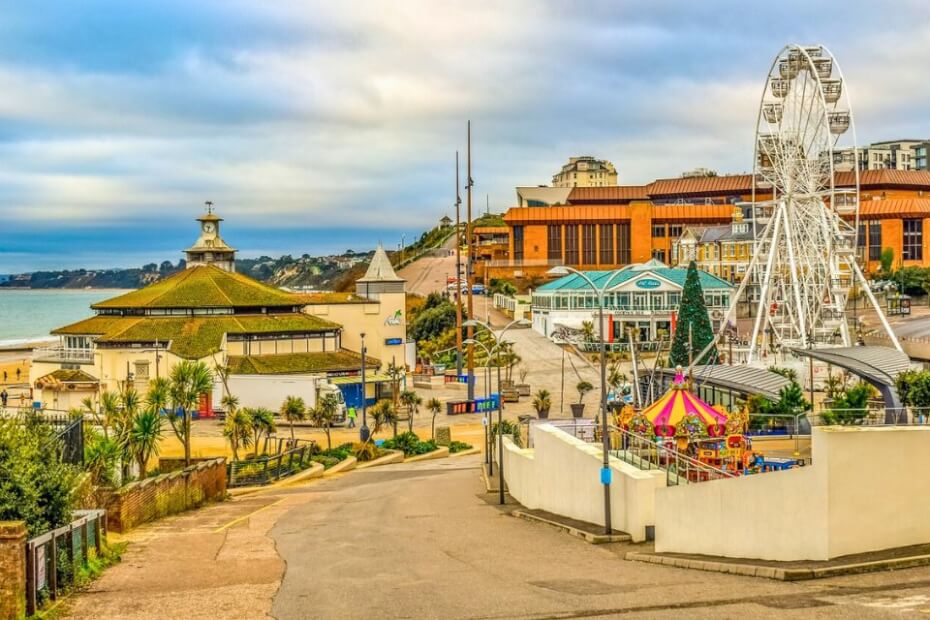
Dorset is the second United Kingdom (UK) destination that will soon impose a tourist tax.
From 1 July, visitors to the seaside towns of Bournemouth, Christchurch, and Poole (BCP) will need to pay extra for their holiday.
Hoteliers in the three towns voted to impose a visitor fee for tourists who will stay overnight.
This vote comes after consulting with the Accommodation Business Improvement District (ABID).
The tourist tax, which will have tourists pay £2 per room per night, is expected to generate £12m in the next five years.
Rosie Radwell from Marsham Court Hotel, chair of the shadow ABID board, said the extra funds would significantly impact tourism in the area.
“We are excited about the future and have already started to plan projects and events to enhance tourism in the area,” she said.
Radwell also thanked other accommodation providers “for recognizing the power of partnership working and the need to act now.”
The BBC reported that the ABID announced that the tourist tax aims to “strengthen and grow tourism in the coastal area.”
It is designed to “safeguard the local economy” and not hinder tourism or exert control over tourism.
The funds generated by the tourist tax will be used to attract more visitors to the Dorset coast.
It will support tourism events such as the Bournemouth Air Festival, Arts by the Sea, Poole Christmas Maritime, and Christmas Tree Wonderland.
The BCP Council previously announced plans to cut costs by discontinuing subsidies for the resort’s yearly air festival after 2024.
It will also stop paying for entries to the Blue Flag scheme, an annual certification program for well-managed beaches.
Other UK towns with tourist tax
Manchester City was the first UK destination to impose a “Visitor Charge” last year after 80 percent of local hoteliers voted in favor of it.
Its scheme is similar to the levy tourists will have to pay when visiting the three seaside towns on England’s south coast in July.
Starting in April 2023, Manchester City visitors had to pay £1 per room per night. After a year, it raised about £2.8 million.
The tourist tax of England’s third largest city also aims to fund measures to attract more visitors.
One of its goals is to help increase tourism revenue, particularly during low occupancy periods.
Another aim is to keep occupancy rates high as more tourist hotels and apartments are built in Manchester.
So far, the funds have been used for street cleaning and marketing campaigns to promote the city beyond the high tourist season.
Other cities planning to impose a tourist tax are Cambridge and the seaside towns of Cornwall and Devon.
Cornwall Council has launched a councilor-led inquiry to improve tourism’s year-round benefits, including a tourist tax.
Malcolm Bell, the CEO of Visit Cornwall, supports a tax on the four million annual seaside town visitors.
If it does introduce a tourist fee, he stressed that the neighboring town of Devon should also have one.
This ensures that the extra cost does not put visitors off and keeps the holiday beaches competitive.
On the other hand, Cambridge had announced plans to impose a tourist tax as early as 2025.
Its tourist fee would be a nightly charge of £2 per room per night, estimated to generate about £2.6 million yearly.
Councils cannot impose tourist taxes
According to a House of Commons briefing paper, town councils do not have the authority to impose tourist taxes.
However, towns like Manchester City, Liverpool, and Dorset’s Bournemouth, Christchurch, and Poole have done so via a legal workaround.
Jemma Little, Cambridge Council’s economic development manager, said the city must first form an ABID.
Then, “there needs to be a ballot of the hotels within that catchment area [of Greater Cambridge]” to vote in favor of a tourist tax.
Once a Cambridge ABID is operational, eligible hotels within the district could collect the tourist tax from customers.
Liverpool’s ABID works a bit differently. It puts a levy on properties valued at £45,000 or more, capped at £50,000 each.
The tax amounts to 1.6 percent of a property’s value but will increase to 4.5 percent from 2024 to 2026.
Liverpool’s ABID expects it to bring in £939,000 yearly during these latter years.
UK legislation on tourist-related taxes
Scotland has already introduced legislation allowing local authorities to have ‘tourist taxes’ on short-stay accommodation.
The Welsh Government has also proposed introducing similar legislation but has yet to offer a timeline.
On the other hand, there are no plans to propose policies that would impose tourist taxes in England.
However, all non-visa nationals visiting the UK will have to pay extra once the new Electronic Travel Authorization (ETA) scheme starts its widespread rollout.
The ETA is not a tax or a visa. It is a £10 digital travel permit that is valid for two years and allows for multiple short stays of up to six months.
This includes short visits for tourism, visiting family and friends, business, study, temporary creative work, and transit.
Currently, only visitors from Bahrain, Jordan, Kuwait, Oman, Qatar, Saudi Arabia, and the United Arab Emirates must have an ETA before traveling to the UK.

